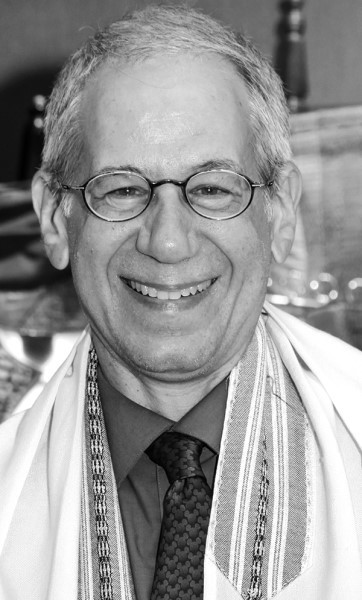Joseph and the American Diaspora experience
Our portion – Vayeshev – marks the beginning of an historical condition for the Jewish people, one that would not be resolved until 1948. It is the beginning of the Joseph story, a story of family drama, a story of exile, a story of redemption. When Joseph is sold by his brothers into slavery and is brought to Egypt by the Midianites, Joseph’s rise to power in a foreign land would serve as our model for the Jewish diaspora experience.
Unlike Joseph, who rose to be the Pharoah’s advisor, who was given great power and authority despite his foreign status and who was triumphant and wealthy beyond even his wildest dreams, our dreams in foreign lands have often gone awry. The experience seems eerily familiar: We are welcomed into a foreign country, presumably to strengthen a moribund economy. We do exactly that, and in the process, we grow strong, numerous and visible. Suddenly, we are too visible; indeed, we are so visible that the ruling class – the ones who extended their arms to welcome us in the first place – now feel threatened by our presence. Without warning, we go from invaluable economic partners to national pariahs. From loyal, law-abiding citizens we become an alien minority seeking to subvert the nation’s treasured values. Time after time, we have gone from Pharoah’s palace to Pharoah’s slave, in just the blink of an eye. As the book of Exodus reminds us, this was a Pharoah who did not know Joseph.
The American diaspora experiment was supposed to be different. Yes, we are a small minority, roughly 2 percent of the population. But as Joseph’s story reminds us, our influence has always been much greater than our numbers.
Recently, however, our archetypal diaspora experience – the safe and secure status we have enjoyed in the United States for several decades (indeed my entire life) – has surprisingly been called into question. During the presidential campaign, Jewish journalists were viciously attacked online, with words and images referencing the Holocaust that were meant to invoke fear and intimidation.
Since the election, hate crimes have increased to the point that the New York Times has a new weekly feature dedicated to reporting them. Right here in Rhode Island, Jewish institutions have been defaced with swastikas and anti-Semitic graffiti, and one of my colleagues was subjected to a verbal assault while walking on the street. As the so-called “alt-right” gains traction in the media, our own sense of well-being feels different today than it did just a few months ago.
We have, over the last several decades in the U.S., weathered various anti-Semitic storms. From Father Coughlin’s radio broadcasts in the ’30s to the anti-Communist blacklists of the ’50s, from accusations of dual loyalty to Pat Buchanan’s “Christian nation” rhetoric in the early ’90s, we cannot claim to be surprised to discover darker forces in our midst. Our current circumstances, however, feel qualitatively different; as if Pandora’s box – and the polite civil discourse contained within it – has been ripped open in ways that we are only beginning to understand.
If this is our new reality, we must ask the question: how should we respond? We must continue to build bridges with our neighbors. If there are religious groups we haven’t met, let’s invite them to worship and break bread with us. If there are cultural and social organizations that may not be familiar with our community, let’s be sure to invite them to our communal events. As familiarity grows, suspicion and fear tend to diminish.
We must also stand in solidarity with our neighbors who may be concerned about the current environment. Recently, a Providence mosque received a letter threatening to do to Muslims what “Hitler did to the Jews.” These bold expressions of hate – combined with genuine fears about immigration bans and registries – must be forcefully denounced. Bigotry and xenophobia can only flourish if people of goodwill passively condone this deplorable conduct.
Anti-Semitism – no matter its source – is a scourge against our community. As one community, let us work together and with our neighbors, to confront prejudice and hatred and eradicate it from our midst. May our nation’s deeds always live up to its rhetoric: To protect our religious and cultural freedom, and to ensure that even the most vulnerable among us feels welcome and secure.
May our celebration of Hanukkah bring us light and warmth, and may the new year be one of abundance, good health and peace.
RABBI HOWARD VOSS-ALTMAN is senior rabbi of Temple Beth-El in Providence








